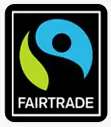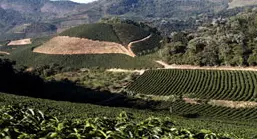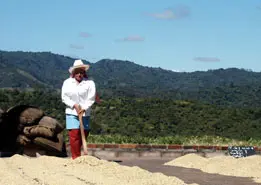Fairtrade

Fairtrade & Rainforest Alliance
We take our responsibilities towards ethical and environmental issues very seriously and are fully focused On fulfilling our role in these areas. We supply a very extensive range of products that have been certified by the Fairtrade Foundation and are eligible to carry their logo and we are committed to a policy of extending our involvement with the Rainforest Alliance programme. Our packaging uses the latest technology processes to minimise its environmental impact and we work closely with manufacturers of our disposable products to ensure that materials used in their processes are sourced in conjunction with this ethos and, where possible, maximum use is made of recycled materials.
Montesion Estate Farm There has been a lot of environmental consideration, hard work and social responsibility involved in producing the coffees grown on this family owned plantation in El Salvador. You may be interested to read about the wonderful achievements that the owner of Monte Sion Estate Farm, Dr Luis Urrutia, has made for the benefit of his workers and local people.
The Process Coffee is processed in the mill the same day it is picked. It is de-husked, fermented in pilas, washed in clean waters and sun dried in patios. The coffee is then left to rest for a minimum of two months so as to ensure it acquires all the characteristics of a high quality coffee. We recycle coffee’s by products (pulp and pulp juice as organic fertilizers) by placing them back to the earth cycle. Pulp juice is used as a foliar fertilizer and neutralizer of the toxic effects of the aluminum and acidity found in the soil.
Pulp is used as an organic fertilizer and we have an integrated handling of plagues, as well as mechanical control of shade and weed. We do not use chemicals from the dirty dozen.
The Social Program Fundación Monte Sión Nuevo Amanecer was created to help people that work in our rural areas in the coffee field and industry. Areas that because of their distance and access difficulty do not receive the help that the government provides in terms of vaccination, education and supplies, nor aid from other non-profit organizations. These are people who work in farms, mostly women that have no husbands and therefore take their children with them to their work. Schools are far away and children have to walk around 3.5 miles to get to school, sometimes even barefooted in ground roads. Our vision is to reduce the poverty and mal nutrition as well as to stimulate the learning of the people who live in the region of
Ahuachapán through activities such as:
- Delivery of food supplies (milk, soy, corn, beans, and hygiene products).
- Handling of clothing and shoe ware
- Children entertainment activities, including handling of free toys.
- Reconstruction of houses to brick Free medical campaigns (specialized doctors, odontologists, ophthalmologists), medicines, vitamins and proteins.
- 9 Literacy programs, graduating 200 people each year.
Vocational workshops
- 3 bakeries, all income received goes to the community
- Sewing courses
Achievements:
- Eliminated severe and moderate mal nutrition 100% of children vaccinated.
- No infancy death rates, no dengue, nor cholera cases
- Literacy has increased up to 70% 2003-2004
- The United Nations named us a role model company on how to combat poverty in El Salvador.

